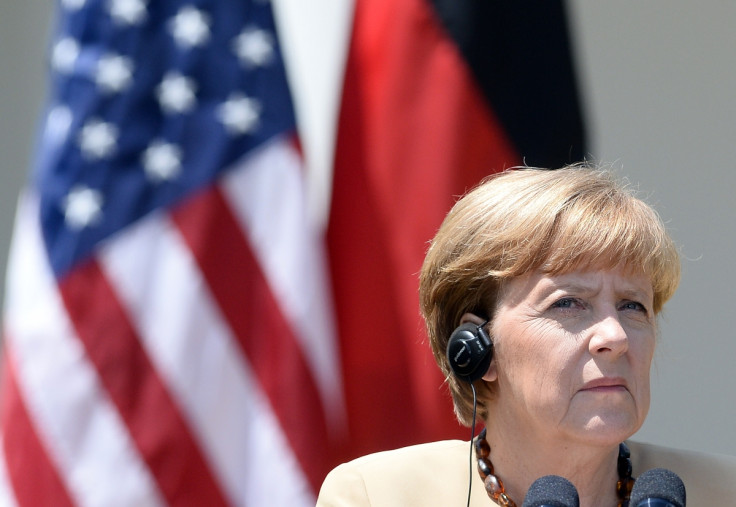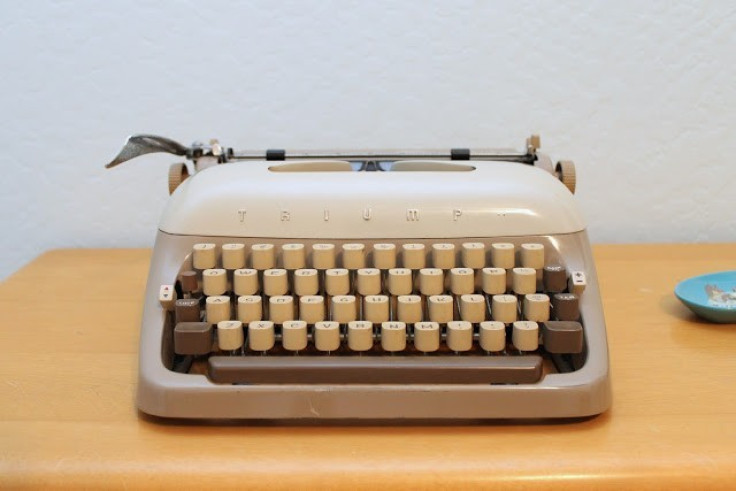Shadow of the Stasi Leads Germany to Consider Replacing Email With Typewriters

You cannot open a newspaper or reload a website these days without seeing some new revelation about state-sponsor cyber-espionage.
In the last week the focus has been concentrated on Germany, where the top US intelligence official was kicked out of Berlin after a 31-year-old man was arrested on suspicion of being a double agent.
In the wake of this controversy, Christian Democrat politician Patrick Sensburg - who is leading the Bundestag's parliamentary inquiry into NSA activity - was interviewed on German television on Monday night and asked replacing email:
"Are you considering typewriters?" the interviewer joked.
"As a matter of fact, we have – and not electronic models either" Sensburg replied.
The interviewer wasn't sure if Sensburg was joking or not so checked, with Sensburg replying:
"Yes, no joke. Unlike other inquiry committees, we are investigating an ongoing situation. Intelligence activities are still going on, they are happening."
Shadow of the Stasi
Despite continuing to celebrate the country's World Cup victory in Brazil last Sunday, tensions in Germany about surveillance continue to ratchet up - though a return to the days of typewriters could be a step too far:
"Reverting to paper and typewriters is perhaps a slight overreaction, but it does demonstrate an unease in Germany around the alleged activities of the NSA and surveillance from other states," Rafael Laguna, CEO of German software company Open-Xchange said.
"The shadow of the Stasi looms large and many Germans, including myself, have personally experienced mass surveillance and state intrusion and it's not a situation that anyone is keen to return to."
Speaking to Spiegel Online, Christian Flisek, the SPD's representative on the inquiry, said: "This call for mechanical typewriters is making our work sound ridiculous. We live in the 21st century, where many people communicate predominantly by digital means. Effective counter-espionage works digitally too. The idea that we can protect people from surveillance by dragging them back to the typewriter is absurd."
Following Russia's lead
The reaction among Sensburg's fellow politicians regarding the possibility of reverting to paper and ink to replace emails has not been positive, but it is not a plan which is without precedence.

In July last year, the Kremlin revealed it ordered 20 Triumph Adlew Twen 180 typewriters at a cost of £10,000 to prevent potential leaks of sensitive information in the aftermath of NSA whistleblower Edward Snowden's revelations about Washington's electronic snooping and eavesdropping
"After scandals with the distribution of secret documents by WikiLeaks, the exposés by Edward Snowden, reports about Dmitry Medvedev being listened in on during his visit to the G20 summit in London, it has been decided to expand the practice of creating paper documents," a source at Russia's Federal Protection Service said at the time.
Each of the typewriters has a unique "handwriting", a sort of trademark that any leaked documents could be easily traced back to the machine which crested them.
In September India's diplomatic mission in London also reverted to typewriters for writing sensitive documents to avoid snooping by security agencies, after it emerged that New Delhi's diplomatic missions in New York and Washington were bugged by the NSA.
Encryption
Laguna says that rather than reverting to the use of dated technology, a better way to re-establish trust is by replying on encryption:
"Trust needs to be restored in communication channels, and currently the only way to ensure this is for governments, businesses and individuals to adopt more secure, encrypted methods for communicating data. People have become used to the convenience that modern technology has afforded them and in many cases are either not prepared to or don't know how to add an extra stage, such as encryption, to their correspondence procedures."
© Copyright IBTimes 2024. All rights reserved.






